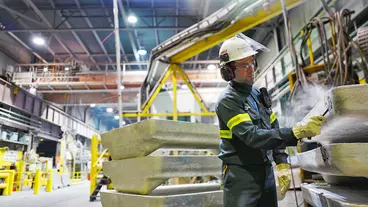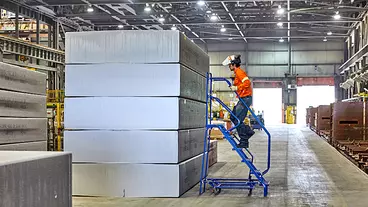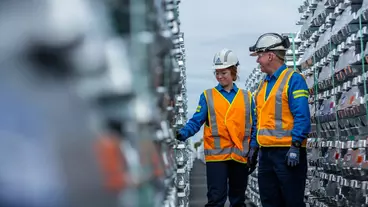Rio Tinto’s aluminium business shows operational stability

Rio Tinto’s aluminium business in Q3 continues to show operational stability and performance across the supply chain.
In view of operational stability, Q3 aluminium production of 0.8 million t was 1 % higher than the same period of 2019. The Becancour smelter in Quebec, Canada, is operating close to full capacity and good progress has been made on the pot relining at the Kitimat smelter in British Columbia, Canada.
“In response to improved market conditions, we have increased the proportion of primary metal being produced as VAP (value-added products) to 45 % of primary metal sold in the third quarter of 2020 (third quarter of 2019: 52 %, first half 2020: 40 %)”, says a company release.
Aluminium production at Isal smelter operates at 85 % of capacity
The Isal smelter in Iceland continued to operate at 85 % of capacity, and the Tiwai Point smelter in New Zealand (NZAS) operated at around 90 % of capacity, with the fourth potline remaining curtailed since 3 April 2020.
“We continue to actively work on enhancing the competitiveness of our smelters, including discussing energy pricing with stakeholders, to ensure the sustainability of our smelters in Australia and Iceland. Discussions continue with the New Zealand Government and Meridian Energy on next steps relating to the wind-down of operations and eventual closure of the Tiwai Point Aluminium Smelter, announced in July 2020,” says the company.
Work on the strategic review of the Isal smelter in Iceland announced in February 2020 is ongoing. In July 2020, Rio Tinto submitted a complaint to the Icelandic Competition Authority (ICA), alleging abuse of market dominance by energy supplier Landsvirkjun. This case is ongoing, pending a hearing with the ICA.
Discussions are continuing on a labour agreement at the Isal smelter, with preparations in place for potential industrial action.
Automotive aluminium products continue to recover
In its market-related statement, the company points to the automotive sector which is continuing to see recovery, supporting some demand for value-added aluminium products, but remains below pre-Covid-19 levels globally.
Rio Tinto recently partnered with Anheuser-Busch InBev, the world’s largest brewer, to deliver a new standard of sustainable aluminium cans. Initially focused in North America, the partnership will see AB InBev use Rio’s low-carbon aluminium made with renewable hydropower, along with recycled content, to produce a more sustainable beer can.

Science-based decarbonization pathways for the aluminium industry with a realistic framework for achieving net-zero emissions across the entire aluminium value chain.

Rio Tinto and cable solution provider Prysmian are partnering on sustainable supply of materials for the energy transition.

Rio Tinto takes another step towards its climate goal of halving its carbon emissions this decade by agreeing to obtain all electricity from renewable power.
